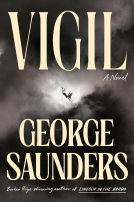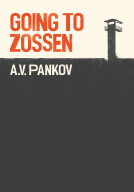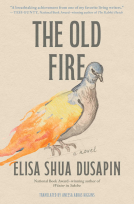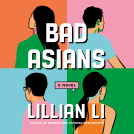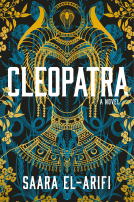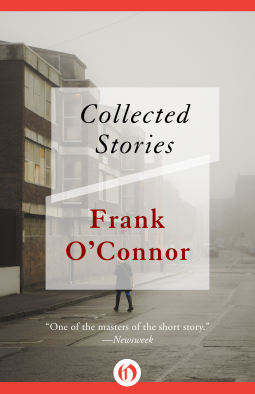
Collected Stories
by Frank O'Connor
This title was previously available on NetGalley and is now archived.
Send NetGalley books directly to your Kindle or Kindle app
1
To read on a Kindle or Kindle app, please add kindle@netgalley.com as an approved email address to receive files in your Amazon account. Click here for step-by-step instructions.
2
Also find your Kindle email address within your Amazon account, and enter it here.
Pub Date Aug 12 2014 | Archive Date Nov 12 2014
Open Road Integrated Media | Open Road Media
Description
This indispensable volume contains the best of Frank O’Connor’s short fiction. From “Guests of the Nation” to “The Mad Lomasneys” to “First Confession” to “My Oedipus Complex,” these tales of Ireland have touched generations of readers the world over and placed O’Connor alongside W. B. Yeats and James Joyce as the greatest of Irish authors.
Analyzing a Robert Browning poem, O’Connor once wrote: “Since a whole lifetime must be crowded into a few minutes, those minutes must be carefully chosen indeed and lit by an unearthly glow.” Each of the sixty-seven stories gathered here achieves the same incredible feat of the imagination, laying bare entire lives and histories within the space of a few pages. Dublin schoolteacher Ned Keating waves good-bye to a charming girl and to any thoughts of returning to his village home in the lyrical and melancholy “Uprooted.” A boy on an important mission is waylaid by a green-eyed temptress and seeks forgiveness in his mother’s loving arms in “The Man of the House,” a tale that draws on O’Connor’s own difficult childhood. A series of awkward encounters and humorous misunderstandings perfectly encapsulates the complicated legacy of Irish immigration in “Ghosts,” the bittersweet account of an American family’s pilgrimage to the land of their forefathers.
As a writer, critic, and teacher, O’Connor elevated the short story to astonishing new heights. This career-spanning anthology, epic in scope yet brimming with the small moments and intimate details that earned him a reputation as Ireland’s Chekhov, is a testament to Frank O’Connor’s magnificent storytelling and a true pleasure to read from first page to last.
Advance Praise
"One of the masters of the short story." -Newsweek
"In his 63 years, Frank O'Connor produced an impressive amount of work . . . but it's his short stories that guarantee his immortality. . . . Each [story] is, in its own way, shattering." -Anne Tyler
"In almost all the stories in this excellently balanced collection O'Connor's people explode from the page. The nice are here and the nasty; the gentle, the generous, the mean, the absurd, those rich in dignity, those without a shred of it . . . Without adornment, he simply tells the truth." -William Trevor
"Though the subjects are mostly Irish and the landscape is either Cork or Dublin, the themes are as universal as those of Chekhov." -Los Angeles Times
Available Editions
| EDITION | Other Format |
| ISBN | 9781497655034 |
| PRICE | $14.99 (USD) |
Average rating from 9 members
Featured Reviews
 Mandy J, Reviewer
Mandy J, Reviewer
This is exactly what it says it, the collected stories from Frank O’Connor’s long and illustrious career. Considered one of Ireland’s, and indeed the world’s, best short story writers, this collection offers the reader stories that will delight and sadden and enlighten, and although in any comprehensive collection covering so many years, there are inevitably some that are less successful than others, or some that simply appeal to some readers less than others , nevertheless there are hours of pleasure to be obtained from this book and I am delighted to have received a copy from Netgalley.
 Christine E, Reviewer
Christine E, Reviewer
Disclaimer: ARC read via Netgalley and Open Road Media.
Certain places enter the imagination, and for whatever reason Ireland is one of those places. Perhaps more recently, those views have been influenced by such shows as Ballykissangel, or movies such as Undine. Who knows? Perhaps Yeats had something to do with it. Or perhaps, most likely, it is because of the Diaspora that occurred in the country.
O’Connor’s short stories speak to the reader because while they are Ireland, they are also everywhere. Take for instance, “Even if there were only two men in the world and both of them saints they wouldn’t be happy. One of them would be bound to try and improve the other. That is the nature of things.” The story, “Song Without Words” might be describing two Irish men, but everyone knows the truth of the statement.
O’Connor’s stories focus on the everyday people, lower middle class, not upper class and not really those living below the poverty. They exist in a time that is at once secure and fluid. There is a priest who attempts to confront a girl about her wayward ways, though it isn’t so much those ways not annoy him. There is the struggle to get something for Christmas, young boys adjusting to the arrival of younger brothers, there is a marriage (or is it), men who don’t understand their women, women who want their men to own up, and women who run with the man’s money. The class of characters is board and sure, the oldest daughter stepping up as mother just as believable as the man with his circus animals.
The choices and hardships that the characters face are not those that will change society or the world, but they are those choices and hardships that can change a life, can make or break a person. For all that, they become far more dangerous and humorous than slaying the dragon or saving the prime minster.
Yeats called O’Connor the Irish Chekov, but in many ways he is also like Joyce in the power and resonance of his short stories. If you enjoyed Dubliners, give O’Connor a try.
What an unpretentious little book, and who would have dreamed it would be so full of first-rate short stories? Mr. O’Connor wrote from the 1930’s to the 1960’s, and may be one of the finest writers Ireland has produced, which is saying a great deal. Thank you and thank you again to Open Road Media and Net Galley for the ARC. It’s been a real joy to read!
O’Connor’s early life was marked by alcoholism and domestic violence, and he tosses these into the stewpot of his stories that is so congenial, so resonant, that we little know the pain he went through before he wrote them. The quality of the writing is consistent throughout, which is even more remarkable given its length, which clocks in at over 700 pages! At times poignant and wrenching, and at other times witty and a little naughty, though never breaching the bounds of good taste, Mr. O’Connor delivers.
His protagonists are ordinary people, all of them in Ireland. They live in small villages for the most part; some are wives and mothers, some are brave young lads; there are noble priests and those who are not as noble, but all of them are believable and create an instant bond with the reader. His overarching theme is to remind us, in his folksy, understated way, that all of us are human. He lets us know that whether we believe in God or whether we don’t, for the moment we are all each other has.
O’Connor lived through revolutionary times, and was no stranger to the Irish struggle, which is near and dear to my own heart. His famous opening story, Guest of the Nation, focuses on a card game that takes place between Republican soldiers and their prisoners. Its blend of the ordinary with the wrenching emotion that ran high at such a time makes it immortal. The soldiers’ ambivalence and humanity lends it much of its authenticity.
One of my own favorite quotes appears early in the collection in a story titled “The Luceys”, in which Charlie visits his uncle, a priest. Charlie thinks his uncle is eccentric and cannot fathom how the man thinks:
“One conversation in particular haunted him for years as showing the dangerous state of lunacy to which a man could be reduced by reading old books.”
May we all suffer similarly!
I loved the references he made to “a gang of women” outside of Mrs. Roche’s house in “The Drunkard”. I also laughed at his reference to “…the mood of disillusionment that follows Christmas”. And in “Darcy in the Land of Youth”, I liked how Mick traveled to work in England and “He found the English very queer as they were supposed to be, people with a great welcome for themselves and very little for anyone else.” Here I would hasten to add that I am descended of both Irish and English, though I tend to lay claim more to the former than the latter; Mr. O’Connor’s gift is in wryly touching upon the cultural nuances that sometimes lead to misunderstandings, and others to genuine disagreement, culture or no.
I could continue quoting marvelous passages, but I think it is better for you to ferret out some of your own, and let’s face it, if I haven’t sold you on this book right now, I never will.
Except for this one last bit, which is really a commentary on all strong short story collections: this time of year, many of us will have guests in our homes. If yours is a family that reads, you may choose to set something out in your guest room, and short stories are especially lovely for them to have, because whereas one may not finish a great thick book during a visit over the holidays, one can pick up a short story at bedtime and finish that story before turning out the light.
And the glorious thing is, guests don’t expect a book that is left for their perusal to be brand new; they can enjoy a well-thumbed book without worrying if they inadvertently crease a corner. Right now, you have the chance to get the book for yourself, finish it, and then leave it for company.
That’s a good thing to do, because in the end, all we have really is one another.
Readers who liked this book also liked:
Rachel Joyce
Historical Fiction, Literary Fiction, Women's Fiction

